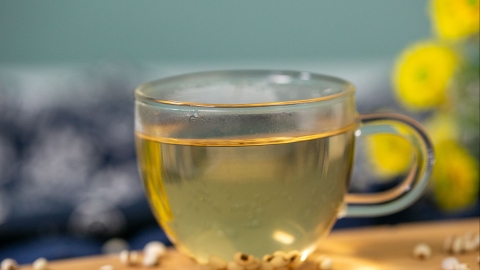Blood Sugar Fears Tea Leaves the Most
There is no such saying as "blood sugar fears tea the most." People with high blood sugar can generally drink green tea, buckwheat tea, mulberry leaf tea, Cyclocarya paliurus tea, and corn silk tea.

1. Green Tea: Green tea is rich in tea polyphenols, which can enhance insulin sensitivity and help regulate glucose metabolism. Its antioxidant components also reduce inflammatory responses in the body, lowering the risk of diabetes complications. Brew 3–5 grams daily, with water temperature around 80°C. Avoid steeping for too long to maintain effectiveness.
2. Buckwheat Tea: Buckwheat tea contains rutin and chromium. Rutin improves vascular elasticity, while chromium participates in carbohydrate metabolism, assisting in stabilizing blood sugar levels. Use 10–15 grams of roasted buckwheat for tea preparation. Its fragrant flavor makes it suitable for post-meal consumption, which can delay carbohydrate absorption.
3. Mulberry Leaf Tea: Components in mulberry leaf tea inhibit intestinal glycosidase activity, reducing glucose absorption. Steep 5–10 grams of dried mulberry leaves in boiling water. It is recommended to consume 1–2 times daily; long-term consumption helps regulate postprandial blood sugar fluctuations.
4. Cyclocarya Paliurus Tea: Cyclocarya paliurus tea contains polysaccharides, saponins, and other components that promote pancreatic cell repair and enhance insulin secretion. Brew 3–5 grams of Cyclocarya paliurus leaves; adding a small amount of goji berries enhances the sweet and mellow flavor, making it suitable for daily consumption by individuals with high blood sugar.
5. Corn Silk Tea: Corn silk tea contains flavonoids that improve kidney metabolism of glucose and promote excretion of excess sugar through urine. Wash fresh corn silk and boil it for 15–20 minutes, then drink the liquid as tea. It has diuretic and edema-reducing effects and provides auxiliary blood sugar-lowering benefits.
It is recommended that diabetic patients understand the composition and potential effects of any tea before consumption. Adjust tea intake according to individual blood glucose monitoring results and consult professional healthcare providers when necessary.







